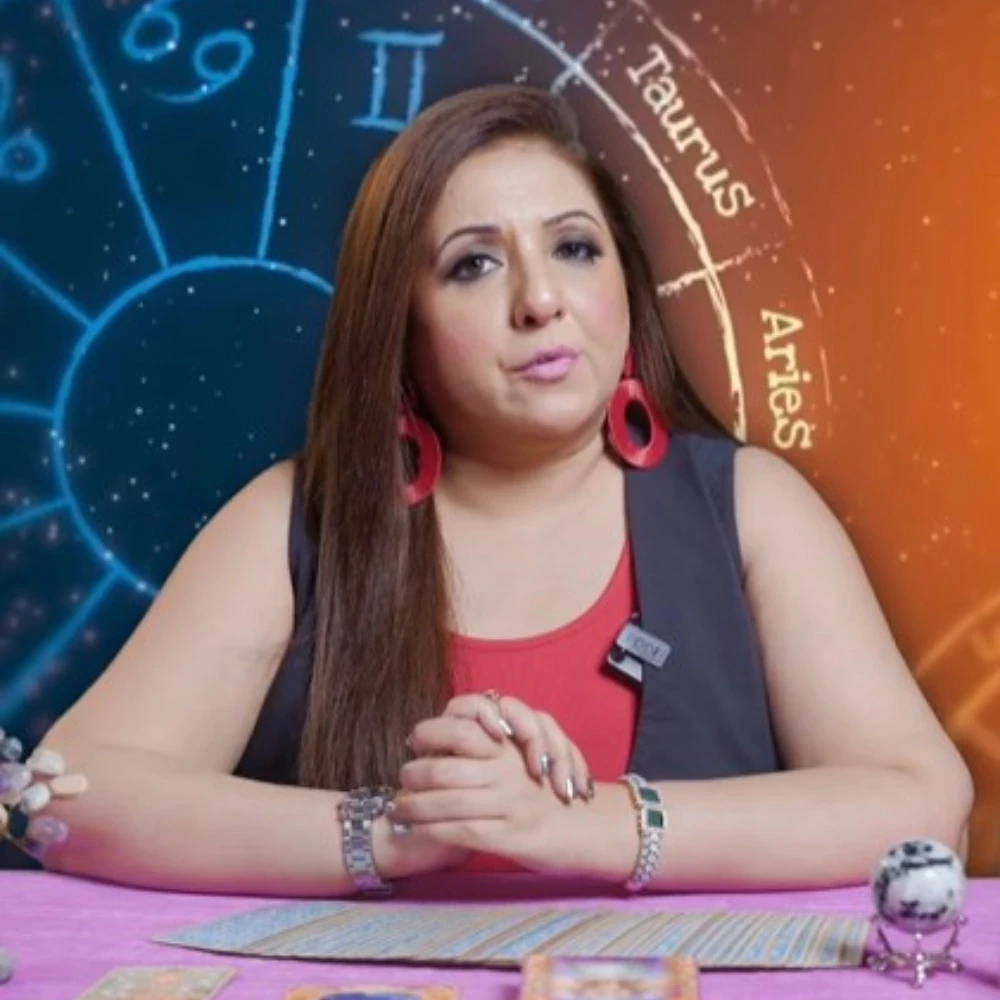How to Fix a Broken Relationship: 25 Signs of a Broken Relationship That Demand Attention
Learn how to fix a broken relationship with effective strategies and expert insights, reigniting love and trust with your one and only that special person.

In the labyrinth of love, we sometimes stumble upon broken paths and shattered dreams. When the very foundation of a relationship quivers, it's natural to wonder, "How to fix a broken relationship?" It's a question that can weigh heavy on the heart, yet it holds the promise of renewal, growth, and the possibility of a love more potent than ever before.
From a stage where our heart danced to our partner's tune, where their presence was our sanctuary, to a twist of fate where their shadow becomes a haunting specter—it's a transformation that can feel surreal. The love, care, and trust painstakingly constructed together now teeter on the precipice of disintegration. But when does one discern the moment, the heartbeat, when the relationship changes? Delve into the verses of this narrative to unravel the signs that herald a love's metamorphosis, the subtle signals that whisper, "The story, as we knew it, may be over." And, if you're wondering how to fix a broken relationship you ruined, the answer may also lie within these verses. So, let's embark on a journey together, where we'll uncover the insights, strategies, and wisdom needed to breathe life back into a fractured connection and rekindle the flames of love.
25 Signs of a Broken Relationship That Demand Attention

1. Emotionally Disconnected
Emotional intimacy is a cornerstone of a thriving relationship, fostering a deep bond between partners. When this emotional connection dwindles or disappears, it's akin to the fading embers of a once-warm fire. A relationship without emotional intimacy can feel cold, distant, and unsatisfying. Conversations become shallow, and the partners may struggle to understand each other's thoughts and feelings. It's essential to address this disconnect promptly by opening up, sharing emotions, and actively nurturing emotional closeness to prevent further detachment and rekindle the relationship's warmth.
2. Lack of Sexual Intimacy
Physical intimacy is another vital component of a healthy romantic relationship. When it no longer holds a significant place in the relationship, it's like an alarm signaling trouble ahead. Disagreements about sexual satisfaction can lead to resentment and frustration. Partners may find themselves feeling unfulfilled and disconnected from each other. It's crucial to discuss these issues openly, seeking solutions that work for both partners. Sometimes, professional help or couples therapy can aid in navigating these challenges and restoring the physical intimacy that is essential for a thriving relationship.
3. Divergent Goals
Sharing common goals and aspirations can bring partners closer, signifying a shared future. However, when partners' goals diverge significantly, it's like trying to follow different paths on a long journey. This can lead to stagnation and frustration as partners struggle to reconcile their aspirations. It's essential to engage in open and honest communication about your goals, seeking compromise or common ground where your aspirations align. If these differences remain unaddressed, the relationship may drift apart as both partners pursue their paths. Reassessing shared values and ambitions is crucial to maintain a strong connection.
4. Feeling Alone Together
When the emotional distance between partners becomes so vast that their physical presence no longer provides comfort or solace, it indicates that something is amiss. Partners may even seek physical separation, like retreating to different rooms or avoiding spending time together. Feeling alone in each other's company can be emotionally taxing and often points to a distressed relationship. To address this, open and honest conversations about your emotional needs and desires are essential. Seeking professional help can also be beneficial in navigating the path toward reconnection.
5. Difficult Conversations
In a healthy relationship, open and respectful communication is the norm. However, when conversations become difficult, and partners hesitate to express themselves due to fear of their partner's reactions, it's a concerning sign. Feeling like you're walking on eggshells around your partner can create tension and unease. To address this issue and learn how to repair a relationship, both partners need to create a safe space for open dialogue. Active listening and empathy are essential to ensure conversations remain constructive and free from fear or intimidation.
6. Loss of Identity
Losing one's sense of self within a relationship can be emotionally draining. When partners start neglecting their own emotions, desires, and individuality, it can lead to feelings of frustration and anger. A relationship should empower and support personal growth, not stifle it. Reestablishing a sense of self within the relationship is crucial for both partners. This can involve setting boundaries, pursuing individual interests, and seeking professional guidance.
7. Lack of Respect
Respect forms the bedrock of a thriving and wholesome relationship. When one partner no longer acknowledges or values the other's beliefs, interests, or boundaries, it creates a toxic environment. Criticism, questioning, or undermining the other's values can erode respect. Without respect, love alone cannot sustain a relationship. To learn how to mend a broken relationship, reestablishing concern involves open communication, setting clear boundaries, and practicing empathy.
8. Frequent Arguments
Constant arguments over trivial matters can reflect underlying issues within the relationship. These repetitive clashes can be exhausting and often signify more profound incompatibilities and frustration. It's essential to address the root causes of these arguments through effective communication and conflict resolution techniques. Seeking professional help, such as couples therapy, can provide valuable tools for managing and reducing conflicts.
9. Lack of Empathy
Empathy is a vital component of understanding and connecting with your partner. When empathy is absent, partners fail to see each other's perspectives and emotions, leading to misunderstandings and emotional detachment. Cultivating empathy involves actively listening to your partner, understanding their feelings, and expressing support and care.
10. Insufficient Time Together
Spending quality time together is crucial for maintaining a solid bond in repairing relationships. When partners prioritize other commitments over their relationship, it can lead to feelings of neglect and disconnection. Reallocating time for each other and fostering shared activities can help rekindle the relationship and repair any strains that may have developed.
11. Absence of Date Nights
Date nights are an opportunity for couples to bond and strengthen their connection. When these intimate moments become scarce or non-existent, it can signify a decline in the relationship's vibrancy. Reintroducing date nights, even in simple forms, can inject new life into the relationship.
12. Abusive Behavior
Any manifestation of abusive conduct, whether emotional, verbal, or physical, is a significant warning sign that signals a potentially unhealthy relationship. Such behavior can lead to feelings of fear, helplessness, and emotional turmoil. Addressing abuse requires immediate help and support, including contacting professionals and support networks.
13. Misaligned Interests
While sharing common interests is essential, having completely divergent interests can lead to boredom and dissatisfaction within the relationship. Partners should strive to find common ground or explore new activities to reignite their connection.
14. Broken Trust
Trust is like the foundation of a house; without it, the structure becomes unstable. When confidence in a relationship is broken due to dishonesty, betrayal, or past hurts, it creates a deep fracture. Rebuilding trust is not easy, but it's essential. It requires open, honest communication, where both partners acknowledge the breach, express their feelings, and work together to regain trust. Transparency in actions and words, consistent reliability, and patience are key ingredients in this challenging process. Time is often needed for wounds to heal, and both partners must be committed to rebuilding trust for the relationship to recover.
15. Bending over Backward
While compromise is essential in a relationship, constantly bending over backward to meet your partner's needs to the detriment of your own can lead to resentment and frustration. Healthy relationships are based on a balance where both parties have their needs, desires, and boundaries respected. It's crucial to maintain your sense of self and individuality within the partnership. Open communication about your needs and expectations, as well as finding mutually satisfying solutions, can help restore equilibrium and ensure both partners feel valued.
16. Feeling Unloved
Feeling unloved or emotionally neglected in a relationship can be emotionally taxing and detrimental to one's well-being. Love, warmth, and emotional support are fundamental pillars of a healthy partnership. If one partner consistently feels anxious, burdened, or unloved, it indicates a significant issue within the relationship. Addressing this requires honest conversations where both partners express their feelings and concerns. Reconnecting emotionally through acts of affection, verbal affirmation, and quality time spent together is crucial to remedy this situation.
17. Lack of Future Vision
Partnerships are strengthened when both individuals envision a shared future together. When there's an absence of plans or shared goals, it suggests a lack of continuity in the relationship. Discussing long-term aspirations, whether related to family, career, or personal growth, is essential for maintaining a sense of direction and purpose. If partners cannot align their visions for the future, it may indicate a need for further exploration and evaluation of the relationship's compatibility.
18. Emotional Disconnection
A robust relationship should encompass emotional, mental, spiritual, and physical connections. If it feels like the relationship relies solely on physical intimacy while neglecting emotional and cognitive bonds, it's a concerning sign. Emotional intimacy is the glue that holds partners together in times of stress or change. Addressing this disconnection involves engaging in heartfelt conversations, actively listening, and exploring shared interests and experiences that foster a deeper emotional connection.
19. Insecurity
Insecurity can erode the foundation of a relationship, leading to self-doubt and anxiety. In a healthy partnership, both individuals should feel secure in their roles and their partner's love and commitment. Addressing insecurity requires open communication about feelings and fears, reassuring gestures of love and support, and personal self-esteem work. Both partners should actively work to create a safe and secure emotional environment.
20. Hopeless Fixation
Holding onto a relationship with the belief that you can fix it despite enduring unhappiness can lead to prolonged suffering. It's crucial to evaluate whether the relationship is genuinely worth saving and whether it serves the well-being of both partners. Sometimes, letting go is the most compassionate choice, allowing individuals to find happiness and fulfillment elsewhere. When considering ways to fix a relationship, it's essential to prioritize the overall well-being and happiness of both individuals involved.
21. Lack of Appreciation
Celebrating each other's achievements and expressing gratitude are essential to fostering relationship satisfaction. When one partner consistently fails to acknowledge the other's successes, it can breed feelings of underappreciation and resentment. Communication about the importance of recognition and celebrating each other's accomplishments is vital to restoring appreciation and harmony.
22. Absence of Gratitude
Gratitude is the lubricant that keeps the wheels of a relationship turning smoothly. When partners stop appreciating each other's efforts and gestures, it can result in feelings of unfulfillment and dissatisfaction. Rekindling gratitude involves recognizing and vocalizing the value of your partner's contributions, no matter how small, and actively showing appreciation through affectionate acts and words of thanks. Reestablishing this mutual recognition can breathe new life into the relationship, fostering positivity and warmth.
23. Infidelity
Infidelity, whether emotional or physical, constitutes a significant breach of trust in a relationship. It's akin to drilling holes in a boat, causing it to sink unless immediate repairs are made gradually. Infidelity shatters the sense of security and emotional safety essential for a healthy partnership. Rebuilding after an affair involves both partners acknowledging the betrayal, understanding the underlying causes, and committing to open, honest communication. Re-establishing trust is a painstaking process that necessitates transparency, forgiveness, and a sincere effort to address the root issues that led to the breach. Without these repairs, the relationship will likely continue taking on water until it becomes unsalvageable.
24. Diverging Paces
Partners growing at different rates can introduce envy and discord into a relationship. It's akin to attempting to synchronize two ticking clocks, a challenging endeavor. When one partner advances rapidly in various aspects of life, such as career or personal development, while the other remains static, feelings of jealousy or inadequacy may emerge. These emotions can create a growing divide between partners. To address this issue, open and empathetic communication is essential. Partners should discuss their goals, support each other's journeys, and find ways to align their paths, even if they progress at different paces. It's crucial to acknowledge that personal growth is not uniform and that the relationship can still thrive if both partners are committed to understanding and supporting each other.
25. Communication Breakdown
Effective communication is the lifeblood of intimacy in a relationship. When it breaks down, it's comparable to attempting to write a love letter with no ink. Misunderstandings become rampant, and resolutions to conflicts remain elusive. Communication breakdowns often manifest as frequent arguments, misinterpretations of intentions, or emotional distance between partners. To address this issue, both partners must prioritize improving their communication skills. This includes active listening, expressing emotions honestly, and fostering an environment where both feel safe communicating openly. Seeking guidance from a relationship counselor or therapist can also be beneficial in navigating communication challenges. Without addressing communication issues, the relationship may become mired in frustration and misunderstanding, making it difficult to move forward healthily.
Conclusion
In conclusion, how to fix a broken relationship requires dedication, patience, and a willingness to work together toward reconciliation. It's essential to acknowledge that healing takes time and effort from both parties involved. Communication is vital; open and honest conversations, free of blame and resentment, can build trust and understanding.
Remember, it's crucial to address the root causes of the issues that led to the fracture in the relationship. This often involves seeking professional help or counseling when necessary to gain insights and develop strategies for improvement.





 JOIN OUR WHATSAPP CHANNEL
JOIN OUR WHATSAPP CHANNEL















































































